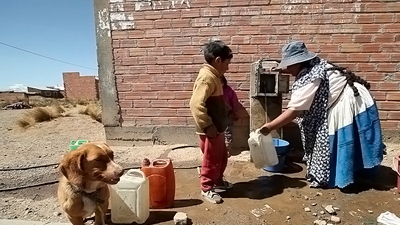For Juan Ramirez, living in Oaxaca, Mexico, the only way to obtain water for his family to wash and clean is to buy water from a truck. For this service he pays almost five times more than families with running water. On top of that, he has to buy drinking water, a burden that is difficult to afford with his income as a construction worker.
Like Ramirez, millions of people around the world still lack access to basic services such as water and sanitation, electricity, and telecommunications. The problem is especially acute in rural areas. Bridging this gap will be essential to eradicate extreme poverty and promote shared prosperity.
A key issue is improving the performance of the utilities that provide the services. Take Latin America and the Caribbean: Many of the region’s electricity, water, and telecom companies have improved service over the last two decades. But there are still wide variations in performance, which means many people still go without essential services.
Why do some utilities perform well?
So why do some utilities perform well and others perform poorly? This is the question a new study, “Uncovering the Drivers of Utility Performance,” seeks to address. It finds that ownership structure, regulatory governance, and corporate governance are all key determinants of sector performance.
The report uses an original dataset on the performance of utility companies in Latin America and the Caribbean. It includes information from more than 250 electricity distribution companies and 1,700 water and sanitation companies, and extensive data on telecommunications service providers, private sector participation in infrastructure, regulatory frameworks, and internal incentives to improve utility performance. Countries covered include Argentina, Bolivia, Brazil, Chile, Colombia, El Salvador, Guatemala, Mexico, Nicaragua, Panama, Peru, and Trinidad and Tobago.
“This study presents a comprehensive, evidence-based assessment of the impact of private sector participation, regulation, and governance structures on the performance of utility (electricity, water, telecommunications) companies. It is part of the Bank’s efforts to bring the rigors of econometric analysis to real sector questions, so that we can better assist our clients in their efforts to improve social welfare,” said Augusto de la Torre, World Bank Chief Economist for Latin America and the Caribbean.


